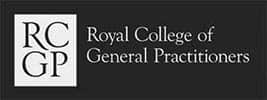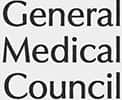
No matter what your age, your skin can say a lot about you. While ageing and beauty are in the eye of the beholder, many people would like to hold onto their youthful appearance as they age. And we think that it’s everyone’s right to choose cosmetic procedures to help them do just that. But there are many things you can do in your 20s and 30s to help slow the ageing process along with non-invasive treatments that help combat the signs of ageing no matter what our age.
Every day we are ageing. It’s a natural process of being human, and it’s better than the alternative. While the skin is only one piece of the ageing puzzle, it is how you present yourself to the world and everyone can see it. What is going on inside your body along with your daily habits lead to good health and “successful ageing”. The skin ages because of these intrinsic (things inside the body) and extrinsic (things happening outside the body) factors. These factors combined determine how gracefully you age or if you start to show signs of ageing earlier than you would like.
Intrinsic factors to ageing are:
Extrinsic factors to ageing are:
While some of these factors are unavoidable, there is a lot you can do to protect your skin as you age. And that’s what we want to talk about today.
While all the things below affect your skin, genetics and unavoidable factors also play a role in how you age. But that doesn’t mean you can’t try to do everything in your power to protect your skin to slow the signs of ageing. Below are the most common extrinsic factors that you have control over when it comes to the ageing process.
Protecting your skin against the sun’s harmful rays is probably the most crucial step you can take to protect your skin from ageing. Sun damage can lead to more wrinkles, uneven skin tone, brown spots and loose skin. Wearing a minimum of SPF 30 every day and lowering long-term exposure to the sun will help protect your skin. If the damage is already done and you are experiencing the symptoms above, there are a few facial treatments that can help, but some damage may not be reversible.
We are what we eat, and our daily habits determine not only our general health but the health of our skin. A diet full of plant foods that are rich in antioxidants and micronutrients will do wonders for your skin. If you are overindulging on high-fat foods or overly processed foods, this can have a poor effect on your skin. Lifestyle habits like inactivity and smoking can also affect how your skin ages.
Dehydrated skin is unhappy skin. Your diet and lifestyle can contribute to dehydration and not drinking enough water and consuming high sugar drinks will affect your skin’s health and vitality.
Your skin care routine and the products you use will greatly affect your skin. If you aren’t using the right products for your skin type, this can cause breakouts, dryness or oiliness. A good skin care line can help slow the most common signs of ageing like wrinkles, collagen loss and sun damage. Anti-ageing components and antioxidants have been studied to see how they delay skin ageing.
“Vitamin C, B3, and E are the most important antioxidants because of their ability to penetrate the skin through their small molecular weight.”
Then we have cell regulators, like retinol, peptides and growth factors, that help collagen production. When combined, you have a powerful anti-ageing formula that is proven to stave off signs of ageing and reduce the appearance of fine lines.
The field of aesthetic medicine has worked hard to create methods and treatments to slow the ageing process and help undo the damage we do to our skin over time from extrinsic factors. While no one method is bulletproof, you can transform your skin in magical ways using a combination of preventative measures and aesthetic procedures.
“The mainspring of any skin anti-ageing therapy is to achieve a healthy, smooth, blemish-free, translucent and resilient skin.”
Today we discuss our best anti-ageing tips and treatments for the entire age spectrum to help you wherever you are on the path to greater beauty and skin health. When you come to our clinic for a consultation we discuss all your desires to create a plan that works as you age, making adjustments as needed to give you the best results.
When you are in your 20s, you may think that you don’t need to pay attention to skin care and that your diet and lifestyle won’t affect your skin, but that’s not the case! Everything you do in your 20s will determine how well your skin ages. An ounce of prevention is worth a pound of cure as they say. So your 20s are the time to find beauty products that work well for your skin type and make sure you wear a daily SPF moisturiser. If you wear makeup, consider natural brands that don’t have ingredients that dry out your skin.
Your diet and lifestyle will start to affect your skin more in your 30s, so it’s a good time to make healthful changes. There are anti-ageing skincare products with ingredients that fight signs of ageing that you might want to introduce in your 30s. These contain active ingredients that are known to help boost collagen production and prevent deep wrinkles from forming. Many people in their 30s use Botox as a preventative measure to combat future wrinkles. People can usually tell a person’s age just by looking at their hands. As your hands begin to show their age you may want to consider a hand rejuvenation treatment, to reverse the ageing process on the hands
In your 40s you will notice more fine lines and wrinkles forming and your skin texture will be different. Your skin type may even change as you get older, becoming drier or a combination skin type. You might need to switch up your skin care routine and change some of your beauty products to adjust for skin changes.
If you find you have sun-damaged skin and dark spots, speak to your esthetician or dermatologist about laser treatments, chemical peels, prescription retinoid and skincare products that can help. Anti-wrinkle treatments are also a great option to soften fine lines and wrinkles, but they also have the added benefit of increasing the production of collagen and hydrating the skin with hyaluronic acid.
The over 50 age group needs special care and consideration. Once you pass into your 50s, the skin continues to lose collagen and elasticity at a faster rate, and gravity takes a toll causing the face to fall and sag. You may also notice a change in your skin due to hormonal changes and menopause. Dry skin can occur as well. Speak to your doctor or dermatologist on the best plan of action to help protect your skin.
If you want to combat sagging skin and deep wrinkles, we recommend a liquid facelift for our over 50 clients. These options are great for those who may have severe sagging and would like an alternative to a traditional surgical facelift.







